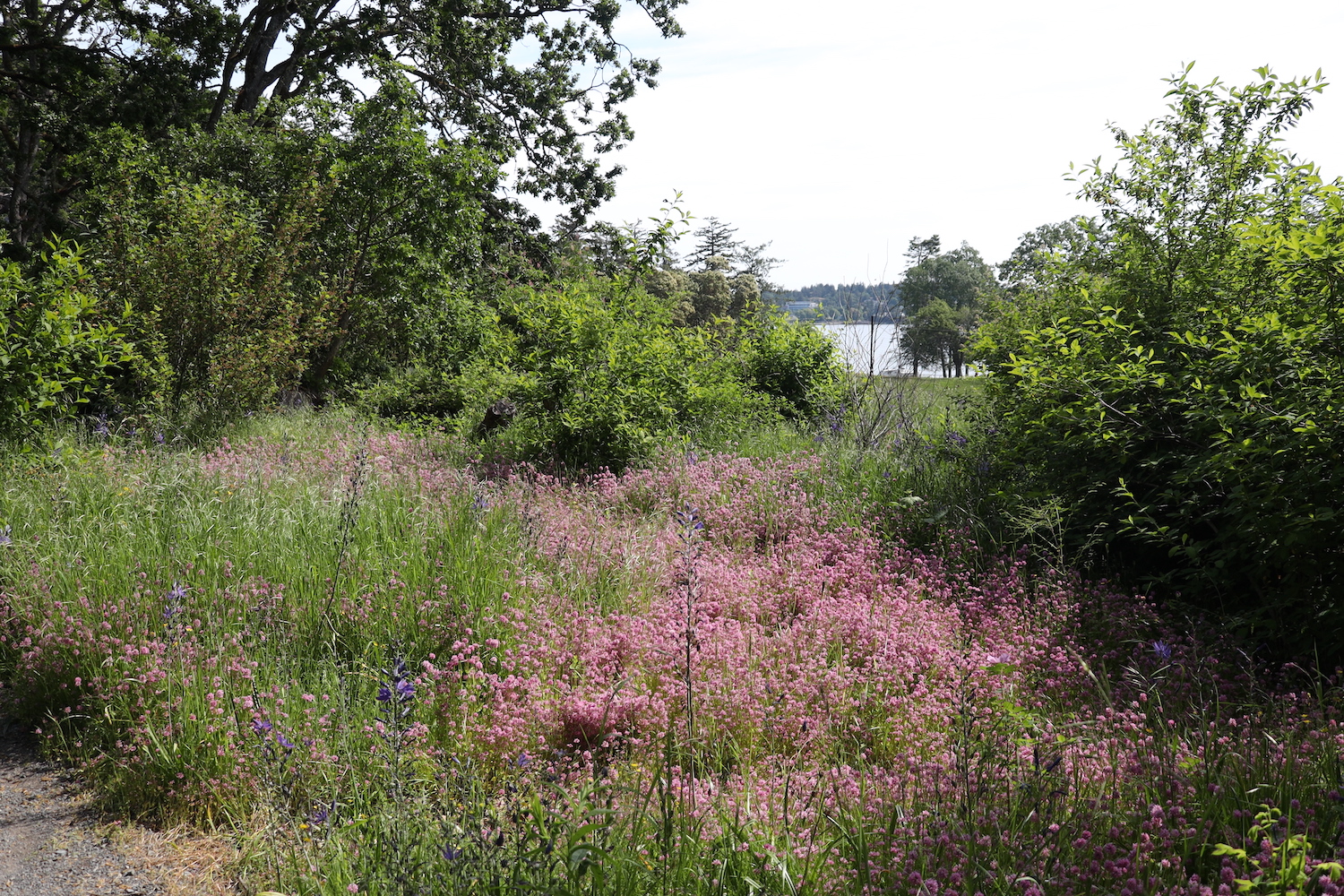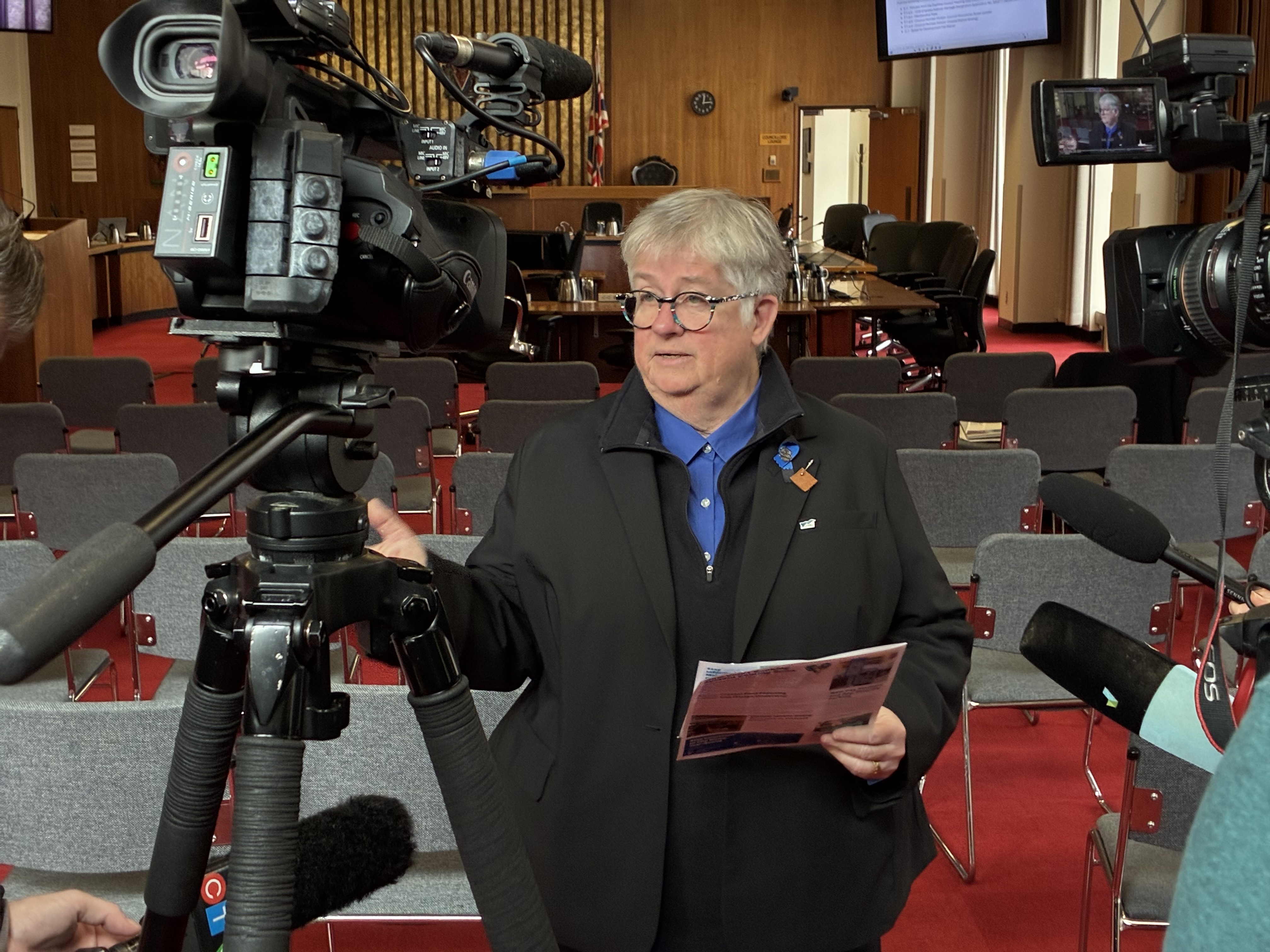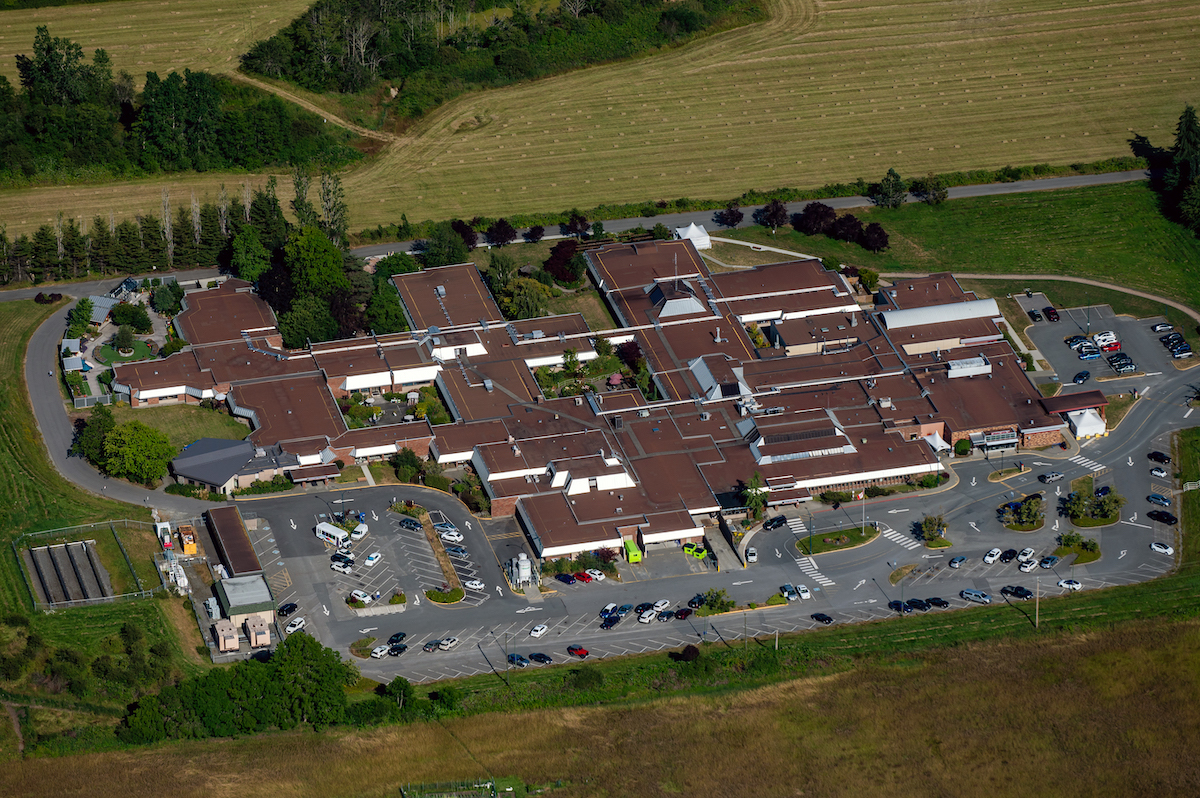How one Victoria man’s journey with a rare cancer inspired him to help others battle the disease
When Nigel Deacon was diagnosed with ocular melanoma in 2010, he couldn’t find anyone else with the same diagnosis. Now, he’s helped create an organization that links patients across the country
Nigel Deacon midway through the Move for Melanoma run in September 2022. Photo: Submitted.
Capital Daily’s good news coverage is supported by United Way Southern Vancouver Island, but the stories and journalism are produced independently by Capital Daily. Per our policy, United Way Southern Vancouver Island has no editorial input into this story.
It took Nigel Deacon years to find anyone else who was living with the same rare eye cancer as he was: ocular melanoma. Twelve years later, Deacon has helped establish an initiative called Ocumel Canada that connects and supports those living with the disease.
His diagnosis came in 2010 when his doctor found a tumour behind his right eye. He wasn’t experiencing any symptoms, and said the diagnosis came as a complete shock. He underwent treatment soon after, which was successful in stopping the cancer. However, two years later, he discovered that the cancer had spread to other parts of his body.
“All of the research told me I had two to seven months left to live. It spreads very quickly, and kills people very quickly,” Deacon said.
Deacon said he was initially told there was no treatment. Not being content with that as an answer, he continued to search for alternatives. Eventually, he found a doctor in North Vancouver who had been doing clinical trials of an immunotherapy drug called ipilimumab, now used under the brand name Yervoy. Though at the time it hadn’t yet been approved for use by Health Canada, Deacon said the doctor was allowed to treat patients on a compassionate basis.
After the first round of treatment didn’t take, his oncologist told him to go home, get his affairs in order, and register for a hospice. Deacon, however, wasn’t going down without a fight.
“I just felt that it was not my time,” Deacon said. “I felt strong, I felt well, I felt motivated. I felt defiant.”
Though he did register for hospice, he also decided to register for something a bit more unusual for someone in his medical condition: an ultramarathon. A long-time runner, Deacon had heard friends in the running community talk about the Comrades Marathon in South Africa and decided it would be his final race. Far from a gentle jog through the park, Comrades is an ambitious 87km ultramarathon that begins in Durban and winds through mountainous terrain, ending in Pietermaritzburg.
Asked about what was going through his mind when he decided to fly halfway around the world to compete in a grueling race when his life was supposedly coming to an end, Deacon laughed.
“I was defying the odds. And I was doing something that was incredible, even to me,” Deacon said.
Following the race, which he successfully completed in just over 10 hours, Deacon returned to Canada and continued treatment. He underwent three more rounds, in 2013, 2014, and 2015, combined with a targeted form of radiation called stereotactic radiation. Since 2015, his tumors have remained the same size. Additionally, he’s been able to keep the vision in his right eye.
Deacon acknowledges that his relative success story is unusual, saying he has “no understanding as to how this happened to me, but it did.” That’s part of the reason he’s dedicated so much of his time to helping others battle cancer.
“All of my time is extra time. I feel very motivated to use it for a good cause, and to use it for a good purpose,” Deacon said. “The most important thing I can do is connect with new patients and say, ‘You're not alone. We're going to tackle this together.’”
Ocumel Canada
Through his research into melanoma, Deacon became connected with Kathleen Barnard, the founder of Save Your Skin, an organization that supports people living with all forms of melanoma. Following this, Deacon helped the organization create Ocumel Canada in 2010 to focus specifically on ocular melanoma. Through a combination of advocacy, outreach, and fundraising, the organization helps people across Canada access better care.
True to his running roots, Deacon is an annual participant in the foundation’s Move for Melanoma event, a challenge where participants can run, walk, cycle, bike, or use whatever form of activity suits them best to raise money for the foundation. This year, Move for Melanoma raised $83,495, with Team Ocumel Canada contributing $12,116 of that.
All the proceeds go towards financially supporting melanoma patients with all the costs associated with treatment, from medical procedures to flights, accomodation, and airfare.
“So far in 2022, we have spent over $45,000 just on getting ocular melanoma patients from BC and Quebec to treatment centres in Toronto,” said Amy Rosvold, director of marketing with Save Your Skin.
Though a diagnosis of ocular melanoma is still a difficult and frightening experience, the group provides a place for people with the disease to connect, a resource Deacon said was nowhere to be found when he was diagnosed. He’s now met with 10 people on Vancouver Island who are all in different stages of their journey with ocular melanoma.
“We're in contact, we're able to share information that way, we're able to share our stories as to what's happening for us, with our treatment of both primary and metastatic disease. It's been a wonderful success,” Deacon said.
Alison Schwarz is one of those people. A Saanich resident, Schwarz was diagnosed with ocular melanoma in 2019. She was introduced to Deacon and the Ocumel Canada community shortly after. Through the group, she was able to find out about a type of genetic testing that would determine her future risk of metastasis. The discovery that she was at low risk for cancer returning has been a huge source of relief.
“It's good to meet people who are going through the same medical issue as yourself. Everyone, I think, is very grateful to meet other people and hear other people's stories and even ask questions,” Schwarz said. “It's a feeling that you're not alone in your own city with this disease.”
In turn, Schwarz was able to give back to the group by sharing her story of genetic testing with others, and encouraging them to undergo the procedure.
This fall, Deacon will bring together ocular melanoma patients on Vancouver Island for a patient roundtable. They’ll then take the experiences shared by patients to shape the direction of the Ocumel Canada going forward. The roundtable will also provide patients another space to connect with one another.
“People will be able to hear each other's stories. They'll know what other people are doing, and maybe they'll take courage from that,” Deacon said. “They will know that they're not the only person going through this pain, that they have company. I'm hoping we will have a feeling of holding each other up.”
















